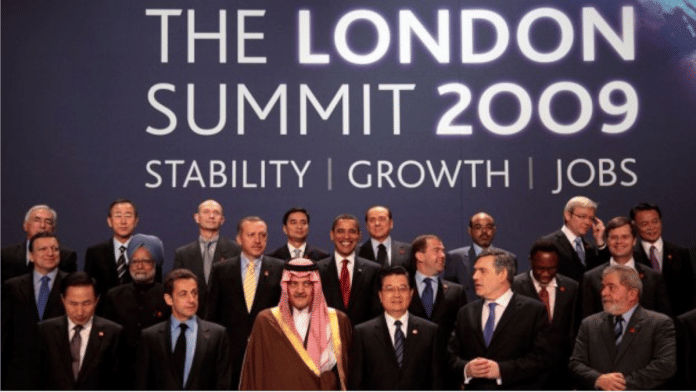Policymakers are playing catch-up and seeking to minimize further disruptions as the coronavirus causes cascading domestic and international economic stops. How they approach this challenge will matter almost as much as what they do to counter the increasing risk of global recession and financial instability.
Indications of a policy call on Tuesday involving ministers of finance and central bank governours of the Group of Seven is, I suspect, just one of several efforts to compare and contrast what individual countries are experiencing and what they see as immediate policy priorities. While I have no knowledge or confirmation, I strongly suspect that discussions are also taking place among central banks, a traditionally more close-knit part of the economic policy apparatus, as well as possibly the Group of 20. All this supplements the notable step-up in national and local policy efforts now that there is clear evidence of the damage to supply and demand and the risk of financial disruptions.
As I wrote on Sunday, there is scope for “whatever it takes” national policy responses to counter some of the worst economic and financial blows; to bolster the most critical sectors, particularly medical; and to shield those most vulnerable. What such an effort cannot do unfortunately is reverse quickly the massive contractionary winds that will hit virtually every economy in the world. For that, we need medical successes in containing the spread of the virus and reducing the severity of illness. Pending this, there is a constant risk of exposing underlying structural economic and financial fragilities that have been developing for years.
Proper policy coordination at the global level, and not just correlation, can provide an important assist to local and national efforts. (This distinction, which I owe to my former Pimco colleague Andrew Balls, is an important one. Correlated efforts mean different countries doing similar things at the same time. That’s not bad, but their actions can be improved through coordination, which also pays attention to spillovers between countries, thereby providing scope for maximizing positive feedback loops and limiting negative ones.)
Also read: Rupee slumps 50 paise to 72.74 against USD after India reports 2 new coronavirus cases
The London G-20 Summit in April 2009 provides an important example of what is needed urgently. Spearheaded by the able leadership of Gordon Brown, the British prime minister at the time, and with close coordination with the United States, the summit came up with much more than reassuring words. It produced tangible collective action that, together with central bank intervention, played a critical role in establishing an economic bottom before the global economy tipped into a depression.
A similar effort is needed now. National policy measures alone, while necessary, are unlikely to prove sufficient, especially if they transmit beggar-thy-neighbour influences throughout the global economy. Absent some understanding of the shifting interdependencies on the ground because of the coronavirus, each country’s actions will prove less effective in countering the negative global growth multipliers resulting from lower consumption, investment, trade and direct investment, as well as the more limited movement of people across borders and, in some cases, within countries.
The G-7 and the G-20 can play an important role in getting to a better outcome both for individual countries and the collective. The process can be meaningfully supported by the International Monetary Fund which, under new Managing Director Kristalina Georgieva, has an essential role in providing the analytical framework, spelling out the interdependencies, identifying credit and liquidity fragilities in the financial system and making emergency funding available for countries with sound policy approaches to this external and exogenous shock.
None of this is easy, especially as it comes against the backdrop of weak global coordination and tensions between some of the systemically important economies. But the alternative is worse than a zero-sum game. It is a series of self-fueling downward spirals that few countries will be able to escape without considerable damage. -Bloomberg
Also read: Coronavirus shrinks global manufacturing to its worst level since 2009






